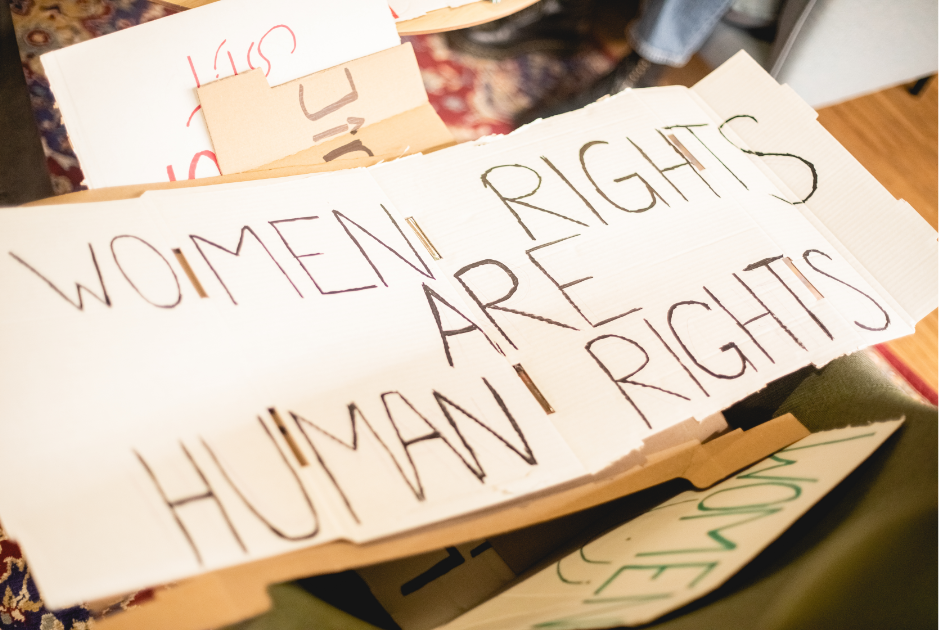'Fat Bottomed Girls' dropped from Queen's Greatest Hits album for kids, prompting debate
Was it the subject matter of the song or some specific lyrics?

Queen in 1977, the year before their "Jazz" album featuring "Fat Bottomed Girls" was released
A new version of Queen's Greatest Hits has been released on Yoto, an audio streaming platform for children. The album includes favorites like "Bohemian Rhapsody," "Another One Bites the Dust," "We Are the Champions" and "We Will Rock You," but this release is missing one notable tune—"Fat Bottomed Girls."
The exclusion prompted a wave of speculation about why it wouldn't be included, which in turn prompted debate over whether the song is offensive and outdated or an inspiring ode to larger body types. One of the most common guesses for why they may have decided not to include it on a platform aimed at young children is this line:
“But I knew life before I left the nursery/ Left alone with big fat Fanny/ She was such a naughty nanny/ Hey, big woman, you made a bad boy out of me.”
A celebration of larger-bodied women? Sure. A reference that could be interpreted as a young boy being molested by his nanny? Maybe not so appropriate for a young audience.
(It's worth noting here that the lyrics of some songs that were not cut from the album include, "I'm a sex machine ready to reload" and Yoto does include the following disclaimer, which only mentions references to violence and drugs, not sex:
NOTE: Please note that the lyrics in some of these songs contain adult themes, including occasional references to violence and drugs. These are the original and unedited recordings. Whilst no swear words are used parental discretion is advised when playing this content to or around younger children.)
It appears the primary reaction to the song's exclusion spawned from complaints over political correctness—"woke cancel culture" as a writer for the U.K.'s Daily Mail referred to it—which has triggered a weird situation where online culture warriors can't seem to figure out what side they're arguing for.
Oddly, the same people who keep referring to LGBTQ people as "groomers" and "pedos" seem to be defending a song sung by a famous LGBTQ icon with lyrics that point to a sexualized relationship between a child and his nanny, simply because someone called the song's removal a "woke" move. And on the flip side, the same people who decry removing sexual material from the children's section of libraries seem to be defending the removal of this song from a child's audio platform for its adult-oriented theme and lyrics simply because the anti-woke crowd is complaining about it.
It's all just a little silly, really.
Popular music has long been a battleground for debates over what's appropriate or not for kids to be exposed to, and there are countless songs we could point to for lyrics that would be disturbing coming out of a child's mouth. I imagine few people would argue that nothing is off limits for children to hear or sing along to, but where does the line get drawn?
My parents were big Queen fans and I recall having "Fat Bottomed Girls" blaring on the stereo when I was a child. Musically, it's a great song—very catchy. And as a girl whose body did not align with the flat-bottomed models of the 1980s, I appreciated what felt like a personal shout-out. My fat bottom actually made the rockin' world go 'round? Sweet. (This was over a decade before "Baby Got Back" and the only time I recall a large butt being portrayed in a positive light in popular culture.)
On the other hand, some of the lyrics are definitely questionable for a child to be belting out, so I can see why it might not be included on an album specifically released for kids. However, the same could be said for some other song lyrics on the album, so why remove this one and not those?
To be fair, the reason why "Fat Bottomed Girls" wasn't included on Yoto's release of the Greatest Hits album is just speculation at this point. But it did get people talking about what's appropriate for kids and highlights the challenge of determining what should be included or excluded from platforms specifically aimed at children, and that's always a worthy discussion to have.





 What was I doing again?
What was I doing again? A space waitress at work.
A space waitress at work.  Waking Up Funeral GIF
Waking Up Funeral GIF Rihanna Nails GIF
Rihanna Nails GIF Yoga pants.Image via Canva.
Yoga pants.Image via Canva. Our natural lashes are nice just the way they are!
Our natural lashes are nice just the way they are! One step forward, many steps back. Image via Canva.
One step forward, many steps back. Image via Canva.  Homelessness is especially rampant on the West Coast.Image via Canva
Homelessness is especially rampant on the West Coast.Image via Canva